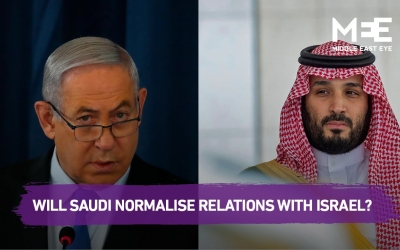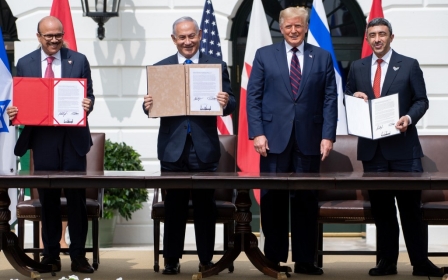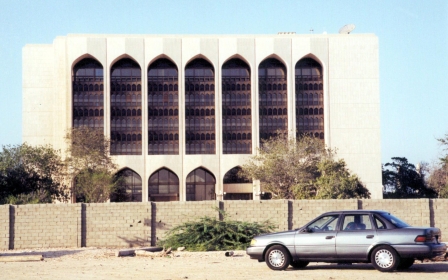US and UAE hoping for deal on F-35 jets sale by December: Sources
The United Arab Emirates and the United States were working on agreeing a deal on the purchase of F-35 fighter jets by December, according to sources familiar with the process.
Speaking to Reuters, the sources said Washington was trying to find a means of securing the deal without upsetting close ally Israel, which had expressed concerns about losing its military dominance in the region.
The reported goal was to have a letter of agreement in place in time for UAE National Day, celebrated on 2 December.
'It's the computing power that allows you to sell a higher-tech jet to Israel than to the UAE'
- Doug Birkey, Mitchell Institute for Aerospace Studies
Two sources said that the US was studying ways to make the Lockheed Martin F-35 more visible to Israeli radar systems, so as not to risk the country's "qualitative military edge".
Because of the qualitative military edge restriction, the F-35 had been denied to Arab states, while Israel had about 24 jets.
New MEE newsletter: Jerusalem Dispatch
Sign up to get the latest insights and analysis on Israel-Palestine, alongside Turkey Unpacked and other MEE newsletters
The UAE, one of Washington's closest Middle East allies, had long expressed interest in acquiring the stealth jets and had been promised a chance to buy them in a side deal made when they agreed to normalise relations with Israel in August.
Sources familiar with the negotiations said a working idea was for Israeli air defences to be able to detect the UAE's F-35s with technology that effectively defeated the stealth capabilities of the jets.
F-35 fighter jets sold to the UAE could also be built in a way that ensured the same planes owned by Israel outperformed any others sold in the region, defence experts said.
Hurdles to jump
Washington already demands that any F-35 sold to foreign governments cannot match the performance of US jets, said both a congressional staffer and a source familiar with past sales.
The F-35's technical sophistication is tied to its mission systems and processing power.
"It's the computing power that allows you to sell a higher-tech jet to Israel than to the UAE," said Doug Birkey, executive director of the Mitchell Institute for Aerospace Studies in Washington.
"When foreign pilots are in training in the US, they type a code into a user interface as they board the jet, the code will pull a different jet for each pilot based on legal permissions," Birkey added.
Either way, actual delivery of new jets was years away. Poland, the most recent F-35 customer, purchased 32 of the jets in January, but will not receive its first delivery until 2024.
The UAE embassy in Washington did not immediately respond to a request for comment from Reuters, while the White House declined to comment.
"As a matter of policy, the United States does not confirm or comment on proposed defence sales or transfers until they are formally notified to Congress," a Pentagon spokeswoman said.
Once a letter of agreement was signed, a fine may be levied against any party that terminated the deal.
Several political and regulatory hurdles must be cleared before the sale may be completed and Capitol Hill aides cautioned a deal may not be possible this year.
Ellen Lord, the Pentagon's chief weapons buyer, told reporters in August that the US aimed to complete a letter of agreement for new F-35 sales in about six months' time.
Middle East Eye delivers independent and unrivalled coverage and analysis of the Middle East, North Africa and beyond. To learn more about republishing this content and the associated fees, please fill out this form. More about MEE can be found here.





